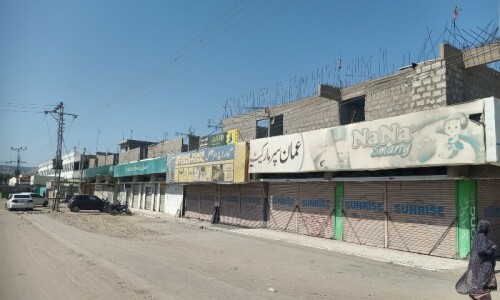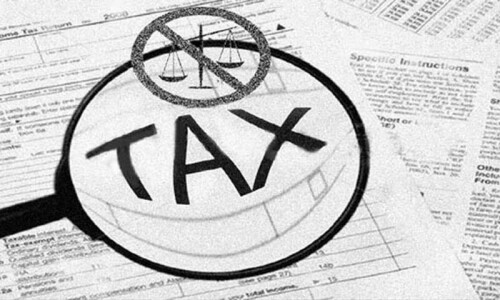KARACHI: In yet another manifestation of the economic slowdown, sales by a majority of listed firms dropped for the second consecutive quarter in October-December.
Speaking to Dawn on Saturday, Arif Habib Ltd Head of Research Tahir Abbas said the combined revenue of the publicly traded companies went down 0.1 per cent to Rs2.59 trillion on a sequential basis in October-December — an unusual development given that top lines of large companies tend to expand amid high inflation.
“The decline in absolute sales numbers is mainly because of oil, which shrank in terms of both value and volume. Excluding that, quarterly revenues increased 3.3pc from the preceding three-month period.”
Mr Abbas pointed out that sales in volumetric terms have gone down in most sectors owing to the economic slowdown coupled with high inflation.
Combined revenue of publicly traded companies down 0.1pc to Rs2.59tr
“Cement, auto, steel and textile are some of the sectors that’ve seen a significant drop in volumetric sales,” he said, adding that this decline has been overshadowed by rising revenue numbers amid high inflation.
Another reason for the declining volumetric sales is the import curbs imposed by the State Bank of Pakistan (SBP) to minimise the dollar outflow.
In particular, Mr Abbas referred to the auto sector, which has seen price increases of up to 75pc in a year or so while its volumetric sales have dropped to multi-year lows.
“The situation is reflective of two things: one, the overall economic slowdown has robbed people of their purchasing power. And two, official curbs on the imports of raw material have forced companies to scale back their operations,” he said.
There’s been “no visible wage growth” in Pakistan even though inflation is at a multi-decade high. In fact, joblessness seems to be rising given the production shutdown notices that listed firms have been issuing rather frequently of late, he added.
The analysis of quarterly sales data by the brokerage house is based on the latest financial results by 69 of the top 100 listed companies. It excluded commercial and investment banks, insurance companies, leasing firms, modarabas and mutual funds for the analysis while 11 companies have yet to announce their results.
As for profitability, however, companies that’re part of the KSE-100 index posted a quarterly increase of 5.1pc in October-December. The rise was led by banks whose earnings grew 20.8pc from the preceding quarter owing to a lower tax charge. Profits of cement companies rose 59.8pc quarter-on-quarter partly because of their use of cheaper coal.
Published in Dawn, March 12th, 2023
















































